This post was updated at 14:40 on 27 September 2016 to clarify the impact of Attainment 8 calculations generally being based on the better of a child’s grades in English literature and English language.
We were asked on Twitter why we thought the 2016 Attainment 8 estimates for English were so much higher than for maths for pupils with lower levels of prior attainment.
@drbeckyallen do you know why outcomes in E+M are so different for students from lower starting pts? @duncanspalding pic.twitter.com/9NNwB0Rpdw
— growth mindset (@growthmindset1) September 26, 2016
We have not yet seen the 2016 pupil data. However, a similar pattern existed in the 2015 data. What light can that shed?
Firstly, for most pupils the English score is the best of two grades in language and literature, whereas pupils tend to get just the one shot at maths.
If English scores were based just on language, for example, then Attainment 8 English scores would be around a third to a half a grade lower than at present. However this would affect all pupils, not just those with lower prior attainment.
So what else could explain the difference?
IGCSE English is often viewed as being ‘easier’ than GCSE English. And sure enough, in 2015, pupils with lower levels of prior attainment were disproportionately more likely to be entered for IGCSE English language than for either GCSE English language or GCSE combined English. (Note that a tiny percentage of pupils are not entered for any GCSEs in English language).
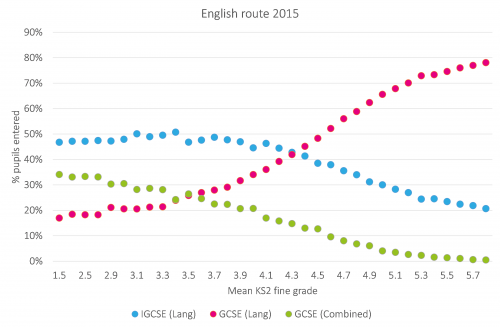
But Attainment 8 English scores achieved by pupils entered for IGCSE are not necessarily higher.
In fact, the scores of pupils entered for GCSE English language tended to be slightly higher, with those of pupils entered for GCSE English combined language and literature lowest.

Of course we cannot infer any causality from any of this.
We cannot see why some pupils were entered for one type of qualification rather than another. And it cannot tell us what would have happened if, for instance, a pupil who followed the IGCSE language curriculum had followed the GCSE language curriculum.
All that notwithstanding, chief suspect for the differences in grades awarded in English and maths is our old friend inter-subject comparability.
A higher percentage of grades F-U are awarded in maths than in English, and this appears to have been the case for a number of years.
The chart below shows the distribution of English and maths grades awarded in 2005/06, before the rise in IGCSE.
In other words, there probably has never been consistency in GCSE grades awarded in English and maths for pupils with lower levels of prior attainment.
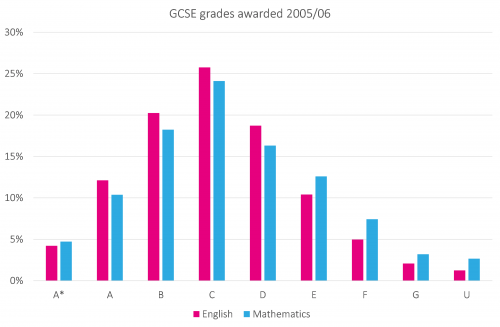


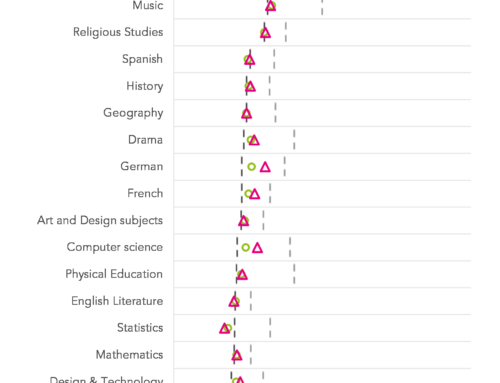
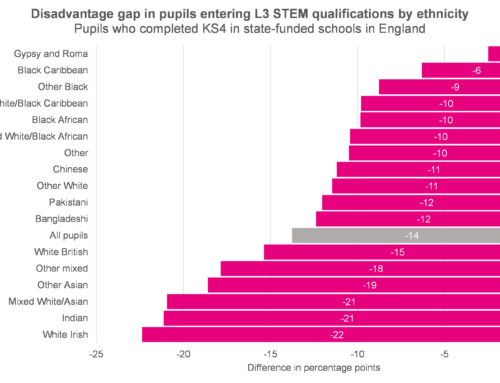
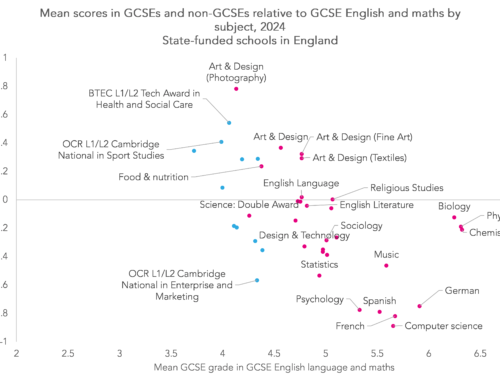
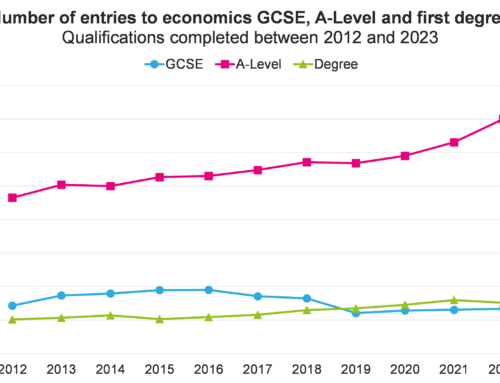
Leave A Comment